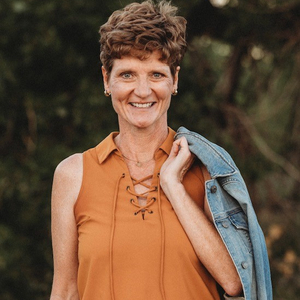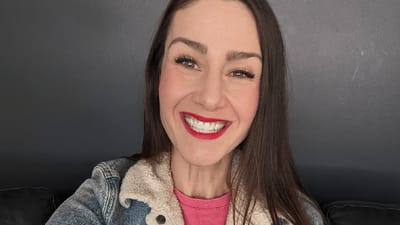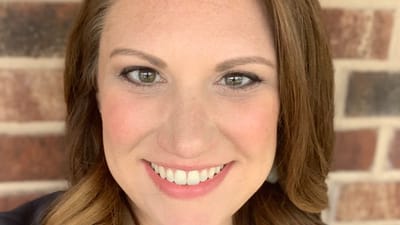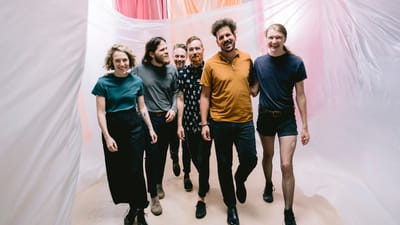Recovery At Any Age
Mental Note is available on Apple Podcasts, Spotify, Stitcher, or wherever you get your podcasts. Search for Mental Note, and subscribe so you never miss an episode!
Check out our podcast, Mental Note. Kelli's life seemed perfect from the outside: mother of two, active in church, a successful career, and loving husband. However, her story is a little more complicated than that.
Kelli's life seemed perfect from the outside: mother of two, active in church, a successful career, and loving husband. However, her story is a little more complicated than that. Listen below to hear more.
Transcript
[00:00:00]
[music]
Kelly Evans: One of the sad memories that I have is my husband's away on a business trip and I'm drinking. My friend calls to check on me and she could tell that I had been drinking. She says, "I'm coming out to your house." She did and I remember her taking care of my [00:00:30] daughter and my son. I remember her tucking me into bed and I'm saying, "I'm sorry, I'm sorry. I'm sorry." She looked at me and she says, "Don't tell me you're sorry. Tell the person standing at the end of the bed that you're sorry." I looked down at the end of my bed and there was my daughter.
[music]
Ellie Pike: [00:01:00] You're listening to Mental Note podcast. I'm Ellie Pike.
[music]
One of the biggest barriers to understanding mental health stories is that they don't always fit into our preconceived notions of who struggles with what. Is it the male high school quarterback or the fashion-obsessed girl that you assume battles anorexia? Is it the veteran experiencing homelessness or the employed father of three who has substance abuse issues? Today's [00:01:30] story brings us up against a number of false assumptions. Meet Kelly.
[music]
Here's what Kelly's life resume looks like. Mother of two, sings in a church band. She's had a successful career as a physical therapist and loves restoring homes with her husband. She's a skilled backpacker and hiker, and she often speaks publicly to inspire others. Sounds [00:02:00] perfect, right?
[music]
Kelly's story is a little more complicated than that. She's eight years into recovery after nearly 30 years of anorexia, alcohol addiction, over-exercise, depression, and suicidality. She's seen it all and still believes that it's never too late to take your first step towards healing. Some things that made a big difference in Kelly's journey are her values, faith, family, and her community, [00:02:30] yet those very things acted as a double-edged sword. Their negative sides contributed to Kelly's traumatic and chaotic childhood. You'll hear how realigning those values made all the difference for her.
Finally, what I hope you catch during this episode is that we all have a choice. Trauma and difficult times will inevitably happen and when they do, we concoct ways of coping. It's human nature, but what happens when those coping skills grow destructive all on their own? Recognizing [00:03:00] our ability to choose a different path helps differentiate between harmful and helpful coping mechanisms. Stay with us.
Kelly: I grew up the oldest of eight kids in a family that was very well respected in our community. I internalized very quickly that the most important thing was to be perceived by others as perfect.
Ellie: That perfectionism [00:03:30] and need to be blameless got hammered in by her mom.
Kelly: One of the things that I remember, my mom had sent my brother and I out to pull weeds under a fence, and she came out to inspect our work. I can still see her standing over us and she said, "Did I tell you the right way to do this job, to pull all the weeds by their roots?" The obvious answer is yes, yes, she told us the right way and she said, "You didn't do it that way. [00:04:00] What does that say about you if you knew how to do this the right way and you chose not to?" She took it a step further and she says, "What do you think God thinks about you when you know how to do something the right way and you don't do it that way?"
[music]
Ellie: A consequence of this was that Kelly felt deep-rooted shame that drove a wedge between herself and the world around her.
Kelly: [00:04:30] I remember walking through the halls of high school never making eye contact with anybody. People that didn't know me real well thought I was really stuck up. Wasn't always stuck up, I was just flat out afraid. I was afraid to look people in the eye because I thought, "Oh, we're going to make some connection. They're going to be able to look into my soul and they're going to be able to know that I am a fraud."
[music]
[00:05:00]
Ellie: Even while Kelly was terrified about being seen as a fraud, she was beginning to find the acceptance she craved via outward success.
Kelly: By the time I got to high school, I was very successful in sports, music, and academics. I remember after running four events in the state track meet as my freshman year my coach telling me to watch out for the four Bs. I was like, "What? What is that?" [00:05:30] He's like, "Watch out for beer, boys, boobs, and butt." He says, "If you want to stay successful in sports, especially track, that's what you got to do."
Ellie: With that, Kelly began to march down a long road of disordered eating.
Kelly: I internalized that that meant to fear my body changing and to do everything I could to control it, [00:06:00] whatever I had to do to manipulate it to not have it change into a woman's body. Then as I started losing weight with the anorexia taking hold, I realized that I really loved the concern people showed for me. I took that as caring and it felt good. That in a way perpetuated [00:06:30] my eating disorder.
Ellie: Let's pause here and dissect what's going on. Kelly felt powerless in her home situation. It was chaotic and manipulative. She began to gain power back by leaning more and more on her eating disorder. It makes sense when you put yourself in her shoes, right? The only problem was disorders can't be turned on and off like light switches. When someone is both genetically predisposed and committed to seeing a disorder through, it can quickly consume their life. [00:07:00]
While Kelly initially found this to be an effective coping mechanism that allowed her to numb emotions and gain temporary control over her life, the joy didn't last. When she left home, it began to dawn on her how much power she had to actually relinquish to the disorder.
Kelly: When I got to college, I thought, "Okay change of scenery, I'll leave my eating disorder at home." When I got there, my eating disorder was still there. [00:07:30] I started drinking in college and became a binge drinker on the weekends, work hard during the week, and that's how I got through college.
[music]
Ellie: Kelly's struggle with alcohol while devastating for her life is not abnormal for her demographic. Alcoholism rates are 41% higher in people with [00:08:00] eating disorders than in the general population. Confronting her problems began to get harder the longer she avoided it, and the deeper she dug, the more stuck she felt.
Kelly: I knew I wanted to get better when I was in treatment that time, but I still wasn't ready to do the hard work of recovery. It still looked like too painful of a process. I went back to graduate school and [00:08:30] things really became very hopeless for me. I actually had a suicide attempt and it wasn't a cry for help. It's by the grace of God that it wasn't successful.
Ellie: After this frightening brush with death, Kelly never fully recovered. She just tried to bury what was hurting her.
Kelly: I was in the hospital for a while after that and I pulled myself together and I got better. I didn't get well. [00:09:00] I got better and I let the excitement of graduating graduate school and moving to a new place in the country, I let that carry me if you will. I moved into the next phase of my life and I started my career. I met my husband. I got married, had two beautiful kids and I was still running road races, marathons, duathlons, volunteering [00:09:30] for everything at school, very active in my church. My goal was to be the perfect mom, the perfect wife.
[music]
Well, I could only keep that up for so long and my late 30s, things really started to unravel and fall apart. I started drinking more and my eating disorder really revved up. My husband knew things were unraveling. My kids could sense [00:10:00] that things were unraveling. By the time I was in my early 40s I was at that place again where I wasn't sure I wanted to even be here anymore.
One of the sad memories that I have is my husband's away on a business trip and I'm drinking. My friend calls to check on me and she could tell that I had been drinking and so she says, "I'm coming out to your house." [00:10:30] She did, and I remember her taking care of my daughter and my son. I remember her tucking me into bed and I'm saying, "I'm sorry, I'm sorry, I'm sorry." She looked at me and she says, "Don't tell me you're sorry, tell the person standing at the end of the bed that you're sorry." I looked down at the end of my bed and there was my daughter. Everything I didn't want to be to my kids [00:11:00] is who, what I was turning out to be.
Ellie: Enough was enough, Kelly needed help and quickly.
Kelly: There was no way I could do recovery alone because it was just too overwhelming and there were too many processes that had to be in place.
Ellie: We see this countless times in recovery stories, the end of self-reliance, and the necessity for trust. I recently spoke to a colleague of mine, Michelle Bowden about this.
Michelle Bowden: [00:11:30] I'm Michelle and I'm a licensed therapist in New York State and I work for Eating Recovery Center. I've worked in behavioral health for almost 20 years. We know that there's a lot of recidivism in eating disorders and oftentimes people go to multiple different treatment facilities to try to get help and it can feel like hopeless battle because no matter where they go, they just can't seem to latch on.
I think the important thing is to know that [00:12:00] there is a program out there that's right for you. We've seen people come into our program that were unsuccessful everywhere and then they came in and there was something that they learned from us that they could plug into and help them to change. Other times we've had patients that came to us that we were another stop on the path but then they went somewhere else and got what they needed, or just found something that resonated with them.
Ellie: For Kelly, that puzzle piece fell into place at age 42.
Kelly: [00:12:30] When I was 42 about eight years ago, I decided to walk through the doors of Eating Recovery Center and ask for help with my eating disorder. I knew that it had become something that was controlling my life and not only was it controlling my life, it was negative-- it was killing me.
Ellie: What was it [00:13:00] about this that finally clicked for Kelly?
Kelly: My kids and my husband were the biggest motivators for me to finally decide to try to get well.
Ellie: Although she developed her eating disorder early and it followed her later into life, it's not uncommon for other women her age to struggle. It's just under-researched.
Kelly: For women in their middle age and even older women, there's I think even an added layer of shame in seeking help, [00:13:30] and I think it's because people think by the time you're 40, 42, you should have life figured out. You should be set, you should be settled, you should be the strong one and I was anything but that.
Ellie: There are currently 53 million women over the age of 50 in the United which is roughly 17% of the population, yet little is known about their disordered eating. [00:14:00] It's a blaring blind spot in a relatively new field of study, even the research shows that body dissatisfaction rates do not decrease with age. One study even found that among 50-year-old women dealing with eating disorders, 69% of the cases began later in life, pointing to the fact that, this can't be oversimplified as a teenager's disease.
Kelly: Recovery has been the absolute hardest thing I have ever done in my life and I've done a lot of hard things. [chuckles] [00:14:30] As I would leave the treatment facility and drive home about an hour, the eating disorder chatter was really revved up in my head as well as the desire to drink, and so two things helped me on that hour drive home every night.
I would either one, call a friend and talk to a friend all the way home and I would tell my friend, "I just need to talk to you, I don't care what we talk about, but if I don't [00:15:00] talk to you, I'm going to pull off at the next exit and I'm either going to find a liquor store or engage in some other behavior of the eating disorder that I really don't want to do but the urge is really strong, so just talk to me all the way home."
Either talk to me all the way home with a friend. I would talk to a friend all the way home or I would turn on the music, and there were some times I would drive home with the music going and I would literally [00:15:30] just cry all the way home and tears would just be running down my face. I would be praying and I would be listening to music and praying and crying and crying out to God saying, "I don't know if I can do this another day." [chuckles] [sobs]
[music]
I was just really so overwhelmed [00:16:00] with the process of recovery and the work that treatment is.
Ellie: Since you're listening to this episode, we kind of know how it all turned out. Those long drives home weren't the end of her story, they were more like the beginning.
Kelly: The eating disorder wants to zone us in, to focus us in, to isolate us, keep us away from people, and my recovery has just expanded my world tremendously to not only see things differently but to include people.
Ellie: Kelly is not [00:16:30] keeping quiet about her newfound love of life. It spills out all the time and she's even built a network of friends who have also walked this hard path.
Allison: Hi. My name is Allison. I am from Dallas Texas.
Ellie: Allison and Kelly met during a storytelling training for survivors of eating disorders. Tell me, you know Kelly Evans.
Allison: I love Kelly.
Ellie: What impact would do you say that she's had on you?
Allison: She has [00:17:00] been one of the most influential people I've ever met in my entire life, like top 10 influential people.
Ellie: Wow.
Allison: Yes. She's so vulnerable and so real. I really look up to her not only like-- I look up to her but also she's a friend which is really cool. We have like 30 or 40 year age difference, but that doesn't matter.
Ellie: What would you say bonds you guys since you have such an age difference, you don't live in the same state?
Allison: [00:17:30] Yes. I would say our faith really brought us together and then we started sharing our stories and sharing our struggles of the weeks of swimsuit shopping to daily, like I'm struggling with this in my relationship with Christ, how can I help you, how can I pray for you. I know I could call Kelly at any moment and she would answer and be there and be the most sound advice I could get from anyone.
Kelly: What I found that the very thing I was terrified [00:18:00] of, connecting with people and letting them really see who Kelly is, I have found out that that's the very thing that has saved my life. That connection with people has given me fuel to do the hard work of recovery even on those tough days. Life doesn't have to end with a suicide, life doesn't have to be lived in its entirety with an eating disorder. Anxiety doesn't have to control your life. I just want to share [00:18:30] the joy of recovery and what life is.
You know what? Kelly is somebody I'm finding out that I really like. That may sound strange but I think if you knew how I felt about myself growing up and even in college, I wasn't somebody that-- I didn't like Kelly. [00:19:00] [chuckles] I abused my body, I didn't nourish it, I didn't take care of it, I didn't treat it with tenderness, and the Kelly that I know now, is not only tender but she's really powerful. I called the shots now in my own life and that's really a powerful feeling.
Ellie: There's a symmetry in Kelly's story. [00:19:30] Faith, family, and her temperament gave her disorder superhuman strength to keep digging a deeper and deeper hole, yet the only way out of that nightmare came from redirecting those same weaknesses and using them as strengths. What changed? Love.
Kelly: I realized there were a lot of things I've been afraid of my whole life. With the biggest fear, the underlying fear being, I'm not really enough. Who Kelly is [00:20:00] is just not enough. I always thought I have to hustle for love a little bit, and I've learned that that's not true.
Ellie: When we look back at the faith of Kelly's childhood, we see harshness critique, and the need to be perfect and show no weakness. These demands extended to her spiritual practice and ultimately turned her own strengths of perseverance and determination against her. Yet when she felt like she had no strength left to recover, it was the love [00:20:30] of her family that enabled her to face those post-treatment car rides home.
It was the community of faith and her paradigm shifts about the nature of divine love that renewed a sense of purpose, and it was an admiration of her own strength and confidence that she gained through treatment, that allowed her to be vulnerable with others and love herself deeply. Meeting someone like Kelly and discovering how she's walked this path has been an amazing opportunity. I trust that it brings the message of the necessity of love [00:21:00] home to you as well. It's our strongest asset in finding the resources we need and overcoming the worst of our lives.
If you or someone you know could relate to Kelly's story and would like to speak to someone, feel free to call ERC and Insight for more information. 877-411-9578, or visit www.eatingrecovery.com. Our show is sponsored by Eating Recovery Center, Insight Behavioral Health, and Eating Recovery Foundation. [00:21:30] You can find out more about our podcast and sign up for our e-newsletter on our website, mentalnotepodcast.com. Also, please subscribe in iTunes and give us a rating and review. Those help more people hear these stories.
Today's episode was produced and edited by Sam Pike. Music by Appearing, Dreaming, Evolve, Begin Again, Melodium, and Kyle Preston. I'm your host Ellie Pike.
[music].
[00:22:00]
[music].
[00:22:11] [END OF AUDIO]




